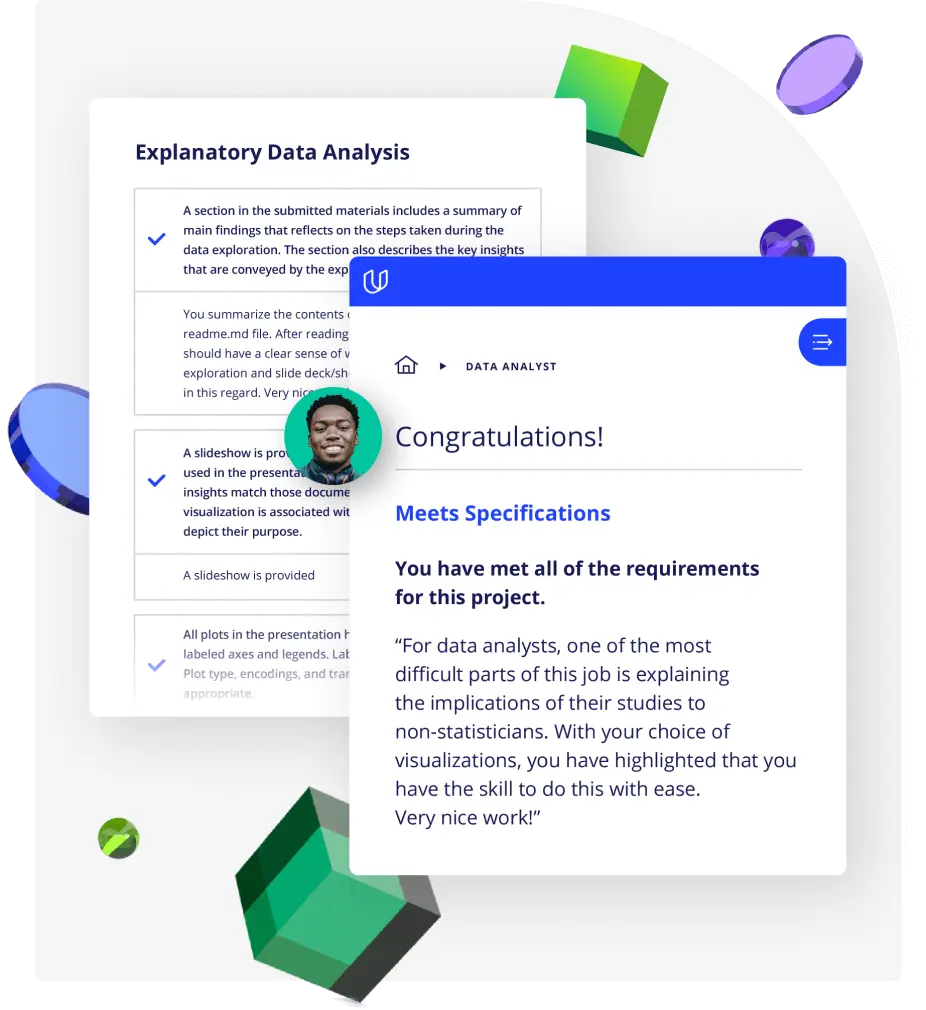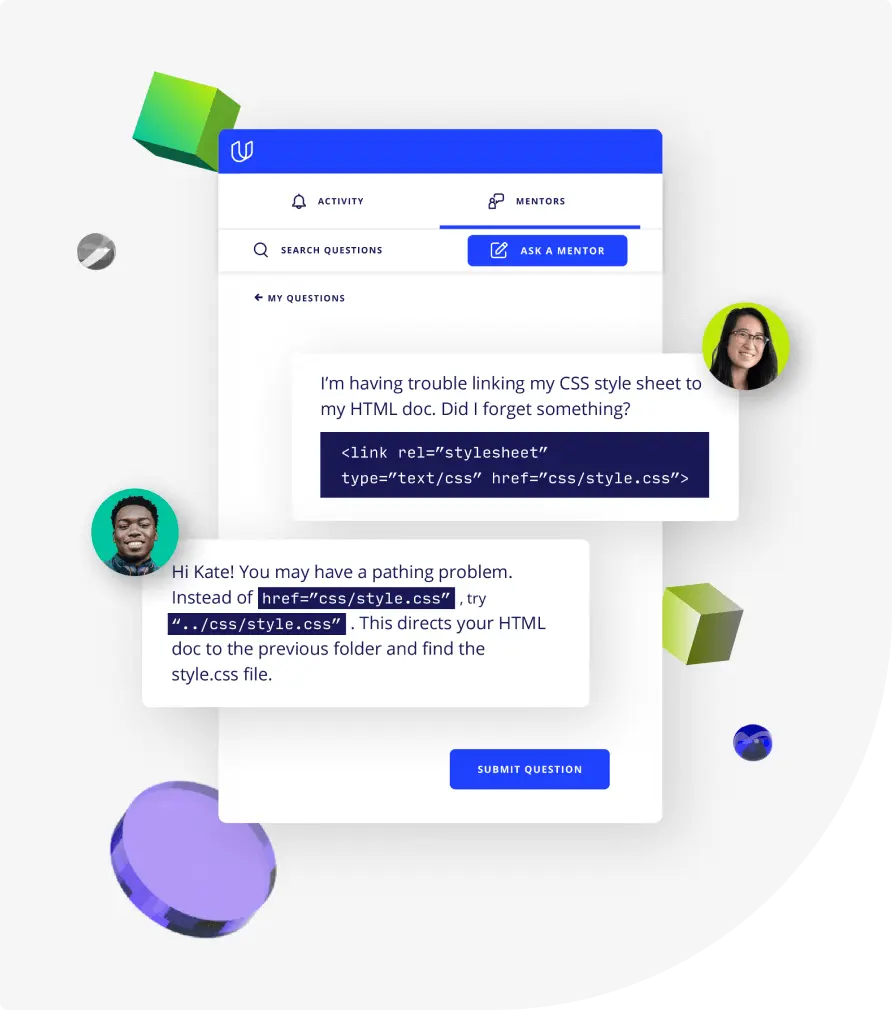Lesson 1
Introduction to Big Data Systems
In this lesson, we will take a 30000 foot view of Big Data and see why it is so important. We will meet the instructor and hear about the components of the course, including the final project.

Course
There are 2 main roles in the Big Data industry: Big Data Engineer and Big Data Architect. We will focus on the Architect role. We will look at the characteristics of Big Data, its business value, and how companies are using Big Data today. We study the most popular storage and processing frameworks.....aka...Big Data ecosystem components. We will dive deep into NoSQL, how it differs from traditional relational databases, how to model, and what the tool interface looks like. Finally, we will talk about the benefits, challenges, design patterns of Data Lake technology. Your final project is based on a real-world scenario that will require you to think like an architect and build an end-to-end data lake system proposal.
There are 2 main roles in the Big Data industry: Big Data Engineer and Big Data Architect. We will focus on the Architect role. We will look at the characteristics of Big Data, its business value, and how companies are using Big Data today. We study the most popular storage and processing frameworks.....aka...Big Data ecosystem components. We will dive deep into NoSQL, how it differs from traditional relational databases, how to model, and what the tool interface looks like. Finally, we will talk about the benefits, challenges, design patterns of Data Lake technology. Your final project is based on a real-world scenario that will require you to think like an architect and build an end-to-end data lake system proposal.
Advanced
4 weeks
Real-world Projects
Completion Certificate
Last Updated June 2, 2024
Skills you'll learn:
Prerequisites:
Lesson 1
In this lesson, we will take a 30000 foot view of Big Data and see why it is so important. We will meet the instructor and hear about the components of the course, including the final project.
Lesson 2
In this lesson you will learn about the main characteristics of Big Data, called the 4Vs. You will also start to explore the Big Data ecosystem.
Lesson 3
In this lesson, you'll take a look at several of the layers that make Big Data possible, We will also look at some of the tools that help implement those layers.
Lesson 4
In this lesson, we will look at the differences between NoSQL and SQL. We will also see why and how NoSQL databases provide capabilities that allow Big Data to be possible.
Lesson 5
In this lesson, we will see what a Data Lake storage implementation of Big Data looks like. In addition to the benefits, we will see what considerations, risks, and challenges organizations face.
Lesson 6 • Project
In this lesson, we will lead you through the scenario and instructions for completing the final project, which is a proposal for an actual Data Lake architecture.

Senior Data Architect
Shrinath is an entrepreneur and Data Architect passionate about helping enterprise companies transform and engineer their big data analytics applications on Cloud. He has worked with AWS, Google and Microsoft cloud platforms, has over 15 certifications and an MS in Computer Science from The University Of Texas at Dallas.
Combine technology training for employees with industry experts, mentors, and projects, for critical thinking that pushes innovation. Our proven upskilling system goes after success—relentlessly.

Demonstrate proficiency with practical projects
Projects are based on real-world scenarios and challenges, allowing you to apply the skills you learn to practical situations, while giving you real hands-on experience.
Gain proven experience
Retain knowledge longer
Apply new skills immediately

Top-tier services to ensure learner success
Reviewers provide timely and constructive feedback on your project submissions, highlighting areas of improvement and offering practical tips to enhance your work.
Get help from subject matter experts
Learn industry best practices
Gain valuable insights and improve your skills

Unlimited access to our top-rated courses
Real-world projects
Personalized project reviews
Program certificates
Proven career outcomes
Full Catalog Access
One subscription opens up this course and our entire catalog of projects and skills.
Average time to complete a Nanodegree program
4 weeks
, Advanced
(80)
4 months
, Advanced
4 weeks
, Advanced
4 weeks
, Intermediate
4 weeks
, Intermediate
1 month
, Advanced
3 weeks
, Advanced
4 weeks
, Intermediate
4 weeks
, Intermediate
4 weeks
, Intermediate
4 weeks
, Advanced
(2)
4 months
, Advanced
4 weeks
, Beginner
3 weeks
, Beginner
4 weeks
, Beginner
4 weeks
, Intermediate

Big Data Systems
4 weeks
, Advanced
(80)
4 months
, Advanced
4 weeks
, Advanced
4 weeks
, Intermediate
4 weeks
, Intermediate
1 month
, Advanced
3 weeks
, Advanced
4 weeks
, Intermediate
4 weeks
, Intermediate
4 weeks
, Intermediate
4 weeks
, Advanced
(2)
4 months
, Advanced
4 weeks
, Beginner
3 weeks
, Beginner
4 weeks
, Beginner
4 weeks
, Intermediate